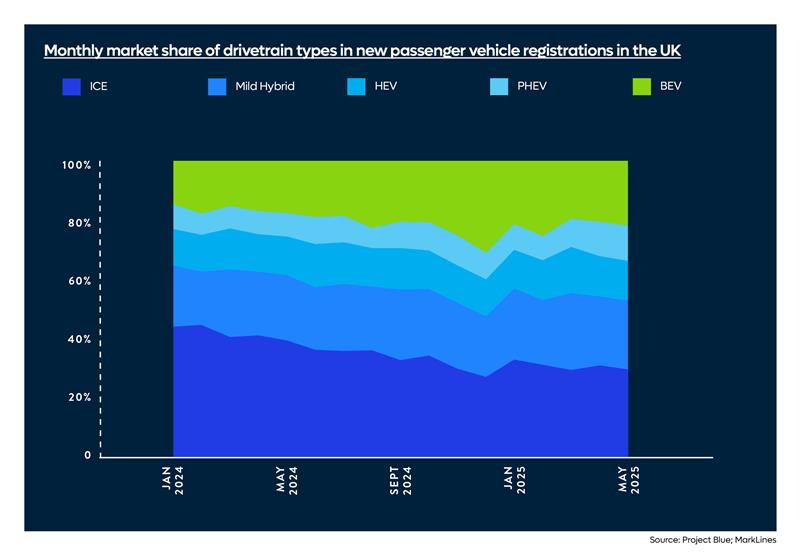The UK reintroduces EV purchase subsidies to boost adoption
News Analysis

16
Jul
2025
The UK reintroduces EV purchase subsidies to boost adoption
The UK government unveiled a new £650M (US$871M) programme to subsidise the purchase of battery electric vehicles as policymakers attempt to accelerate EV uptake amid lagging sales and ambitious targets to phase out internal combustion engines over the coming decade.
Under the scheme, buyers of qualifying models priced under £37,000 (US$49,555) can access discounts ranging from £1,500 (US$2,009) to £3,750 (US$5,023), depending on the environmental performance and sustainability credentials of each vehicle.
Manufacturers must submit applications to have models approved for eligibility, with the programme officially opening to applicants on 16 July 2025. Funding is set to continue through the 2028–2029 fiscal year.
The grants form part of a broader effort to increase adoption in line with the UK’s Zero Emission Vehicle (ZEV) mandate, which requires car manufacturers to ensure that 28% of their sales comprise zero-emission vehicles in 2025, rising to 80% by 2030 and 100% by 2035.
According to Project Blue data, battery electric passenger vehicles accounted for 20.8% of new UK registrations between January and May—indicating progress but still falling short of this year’s target.

To qualify for the highest subsidy levels, vehicles must meet stricter sustainability standards in both assembly and battery production. Models with lower ratings will be eligible for smaller discounts, while certain categories—particularly some higher-emission imports—will not be included in the programme.
The price cap will also exclude higher-cost models, including those of premium brands such as Tesla, focusing support on more affordable vehicles and potentially prompting manufacturers to adapt pricing strategies in the subsidised segment.
Infrastructure expansion is also a priority. Alongside purchase grants, the government has allocated £63M (US$84M) to support home charging installations for households without driveways. According to government figures, the number of public charge points in the UK now exceeds 82,000.
While the new subsidies are designed to make EV ownership more attainable, affordability challenges persist. Battery electric vehicles remain, on average, significantly more expensive upfront than petrol equivalents. The effectiveness of the grants will depend not only on their financial impact but also on continued investment in charging infrastructure and ongoing cost reductions across the supply chain.
The coming year will indicate whether these measures, combined with an expanding lineup of lower-cost EV models, can drive the mass-market adoption needed to meet the UK’s long-term targets.